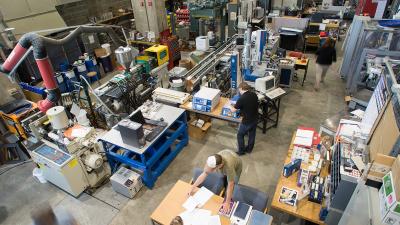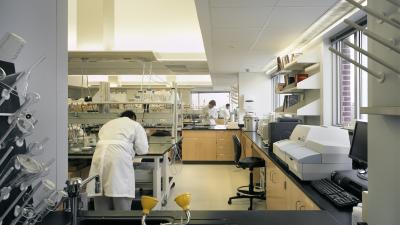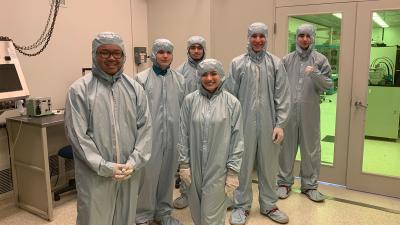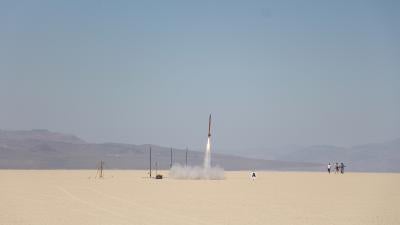MSE News and Events
Institute News
From computer chips and pharmaceuticals to batteries and airplanes, our world runs on manufactured goods and products. However, most people rarely think about how these things get made — not to mention the technology and engineering that goes into making them at scale.
Joan Llabre, Ph.D. '23, who received her doctorate in biomedical engineering from Rensselaer Polytechnic Institute this past fall and is now a postdoctoral researcher at the Institute, has won the Koerner Family Foundation Fellowship, which supports engineers pursuing careers in research.
This year, Rensselaer Polytechnic Institute researchers will begin work on a radically new approach to treating and preventing genetic diseases such as Alzheimer’s.It’s thanks to a grant from the National Institutes of Health’s TARGETED Challenge, which funds scientific research on ways to deliver gene editing tools directly to cells in the human body.
Rensselaer Polytechnic Institute and Hudson Valley Community College have welcomed the inaugural class of RPI-HVCC Semiconductor Scholars. Funded by the 2022 CHIPS and Science Act, the Scholars program is one of many efforts in the Capital Region and around the country to prepare more students to enter the semiconductor industry.
The RPI team is working toward a big dream: a rocket that reaches well beyond the Kármán Line — the point 330,000 feet above sea level that marks the end of Earth’s atmosphere and the beginning of outer space.

 Made at RPI: Celebrating More Than Four Decades of Manufacturing Education
Made at RPI: Celebrating More Than Four Decades of Manufacturing Education
 RPI Grad, Now Postdoc, Wins Prestigious Koerner Family Foundation Fellowship
RPI Grad, Now Postdoc, Wins Prestigious Koerner Family Foundation Fellowship
 RPI Scientists Developing Gene Editing Technology to Treat Alzheimer's
RPI Scientists Developing Gene Editing Technology to Treat Alzheimer's
 RPI and HVCC Launch Semiconductor Workforce Development Program
RPI and HVCC Launch Semiconductor Workforce Development Program
 RPI Rocket Team Ascends to New Heights With Eye on Space Shot
RPI Rocket Team Ascends to New Heights With Eye on Space Shot